Heatherlie Quarry - Grampians - Victoria
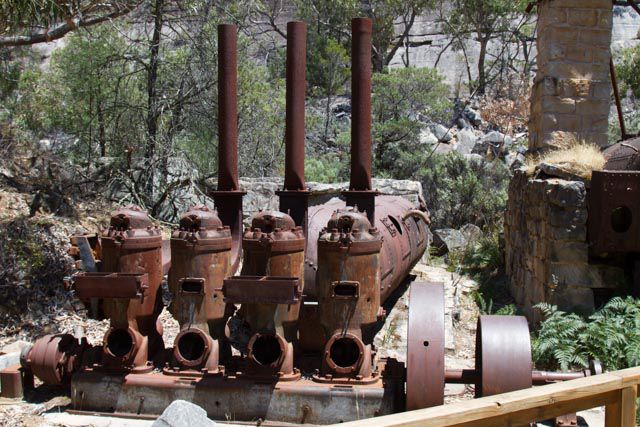
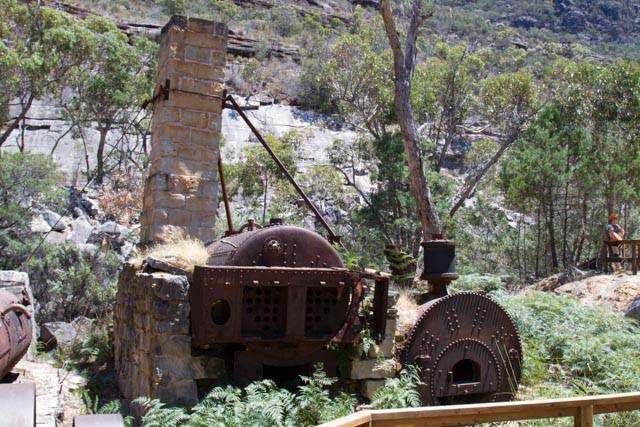
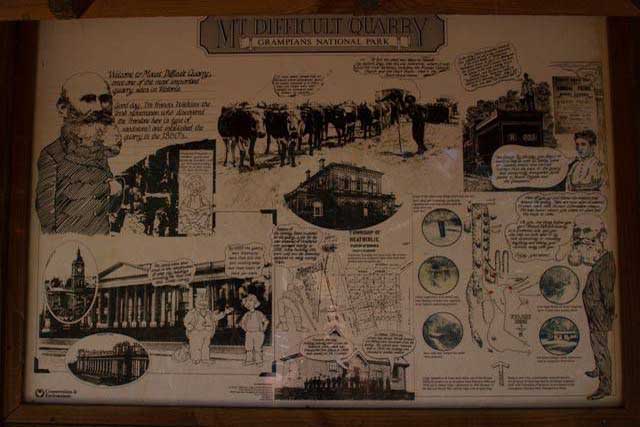
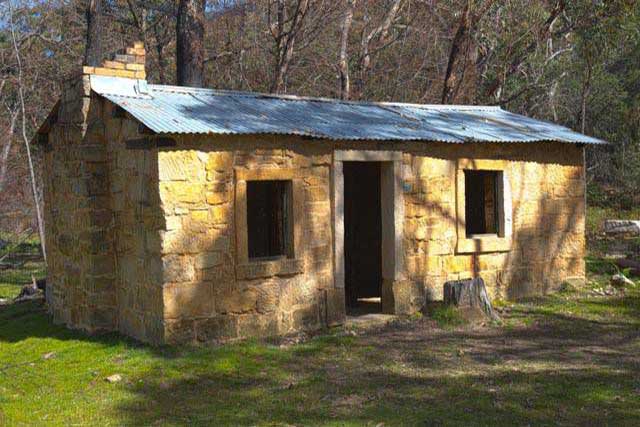
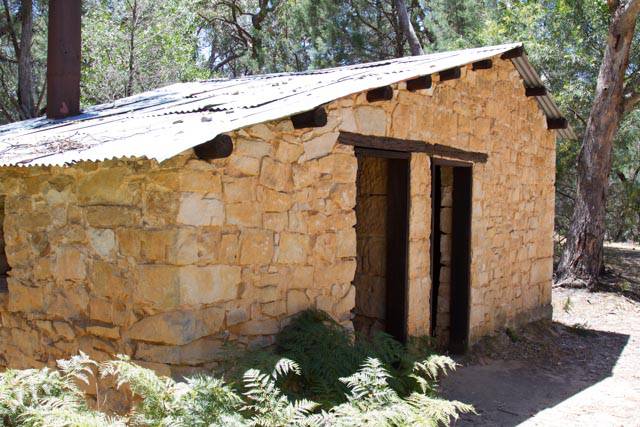
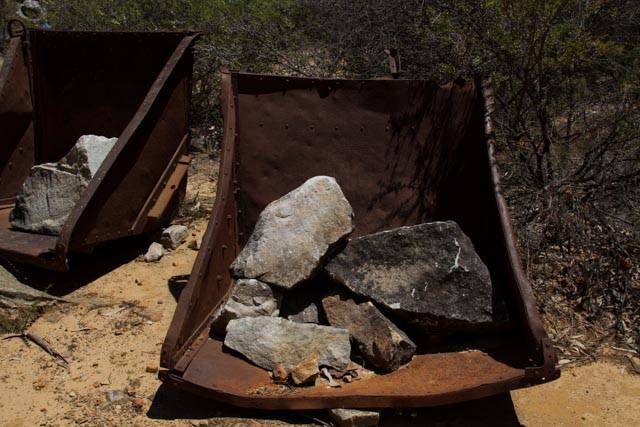
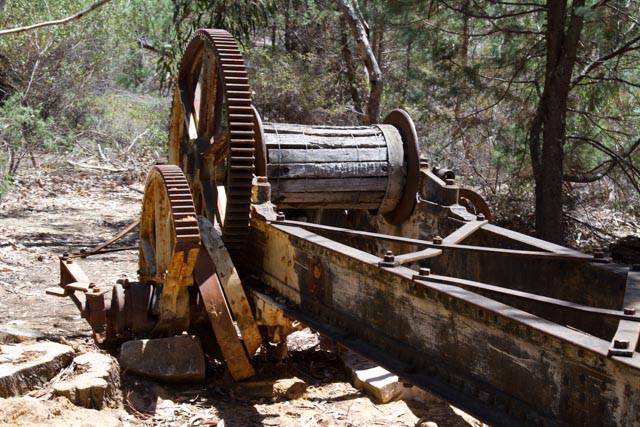









During the late 19th Century and into the beginning of the 20th Century, the Mt Difficult Freestone Quarry (or better known as the Heatherlie Quarry) provided substantial quantities of freestone of the highest quality. Its principle use was for building construction and monumental work. The stone has been used in several important historic buildings in Melbourne, including Parliament House, the Town Hall and the State Library. Of such significance was the freestone, that a tramway was constructed to link the quarry to the main railway line at Stawell, Victoria. A new township of Heatherlie was gazette close to the quarry. Walking around the site of the quarry today, remnants of the quarry’s equipment, accommodation houses and rock faces still showing the marks of the operations of the quarry.
Location This quarry is off the Hall’s Gap-Mount Zero road (also known as the Bolte Highway), 13.5 km north of Halls Gap. It is at the base of Mount Difficult Range, on the eastern side. A carpark is located on the left hand side quite an easy walk to the quarry up a slight rise – about 2.5 km round trip.
It is one off the strongest and most durable freestones in the world. A fine, even grained white sandstone, probably Lower Carboniferous, it is characterized by siliceous segregations and by absence of cementing and colouring matter. Because of its hardness in situ and the presence of flints, the stone is difficult to quarry cheaply, but its unrivalled durability, very low maintenance requirement and appearance make the effort well worthwhile. It can be used as a veneer only 5-6cm thick. Its failure in a building is almost unknown.

The history of the Quarry is very interest and controversial over a number years.
Go to History
This is what the quarry looks like today. It is a great spot to spend a day and explore
Go to Quarry
The Heatherlie quarry has been used in many buildings in Melbourne and the Stawell area. Here is a list and links to photos of the various buildings
Go to Buildings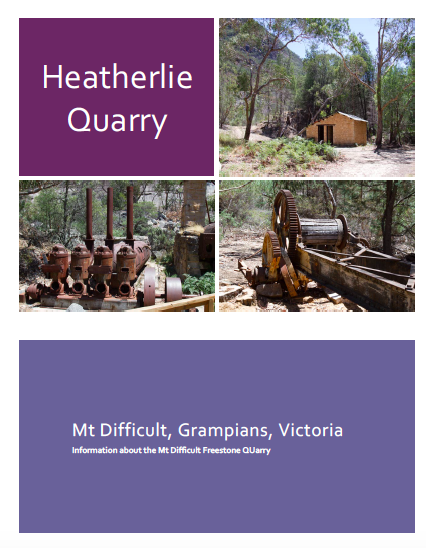
This is being updated as more photos are being obtained. Current version published 24th Jan 2016
Download Here